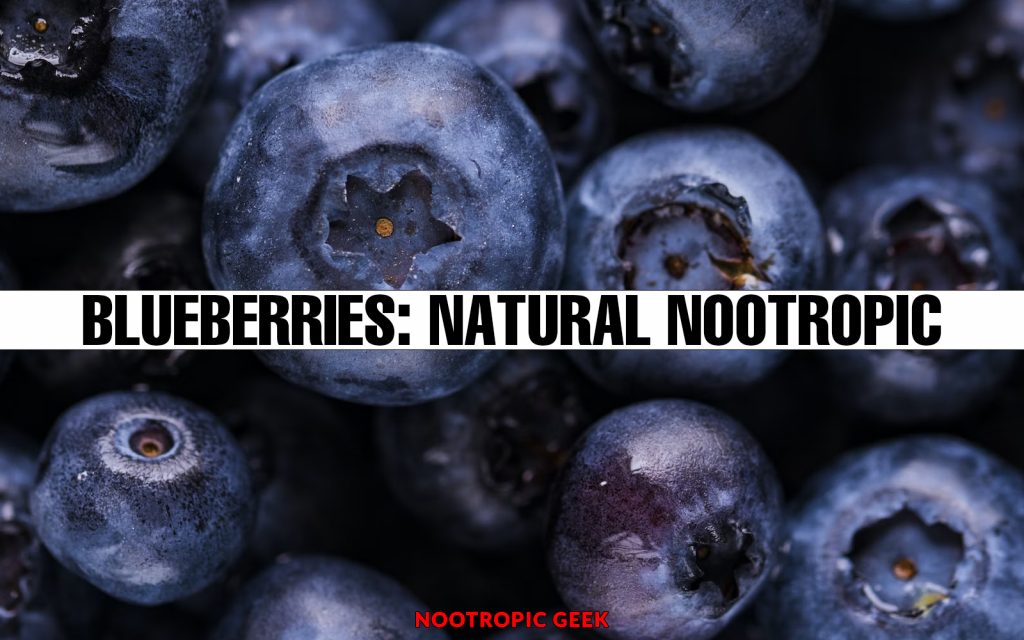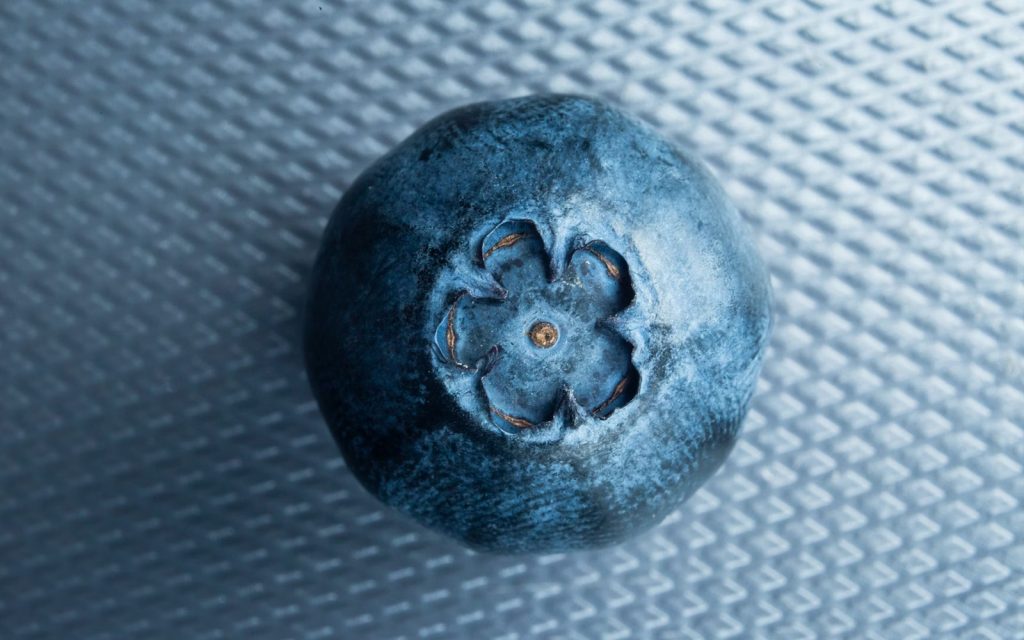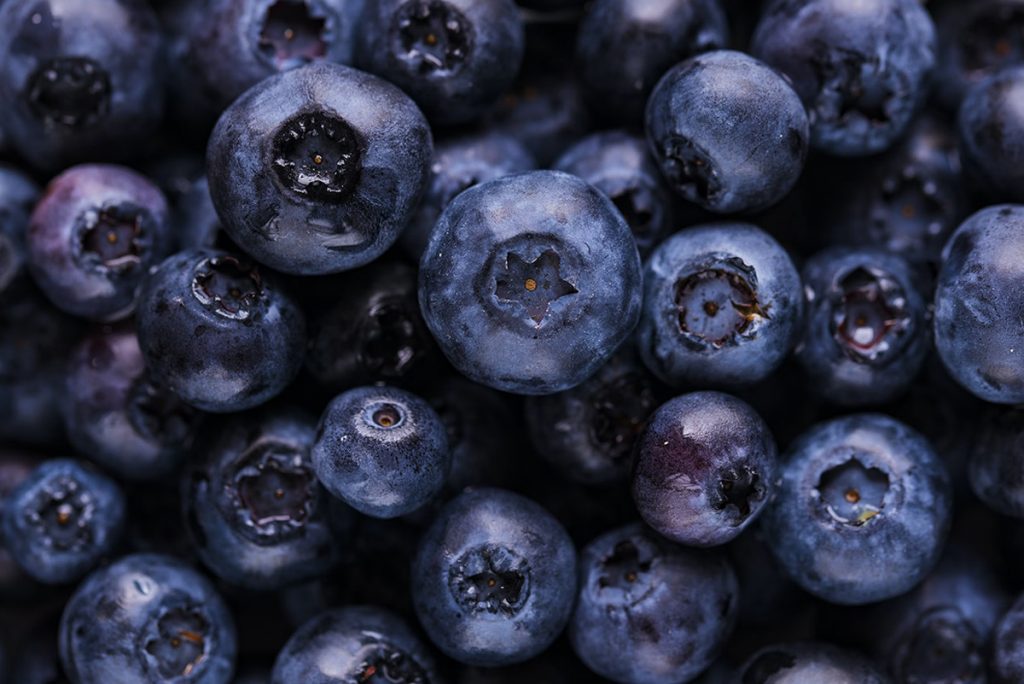Are you looking to enhance cognitive function and support brain health? Blueberries may hold the key. This blue superfood bursts with essential nutrients and bioactive compounds.
Blueberries offer natural nootropic properties. Known as “smart drugs,” nootropics are safe substances that can boost cognitive function & performance. The tiny fruit’s rich content and antioxidants give it a big brain power effect.
Only one among many nootropics, blueberries originated over 15,000 years ago. Native Americans once used them for their healing purposes. Now, we’re rediscovering their powerful cognitive benefits.
Learn about the blueberry’s natural nootropic qualities, like their effects on memory. Discover how they work on a cellular level to support brain health.
On the practical side, explore how to incorporate these berries into your diet. Find smoothie recipes and serving recommendations.
Learn how to boost your brain health with natural nootropics. Delve into the wonders of blueberries: your first step towards enhancing cognitive abilities.
Read my Best Nootropic Supplements of the Year
Page Contents
Are Blueberries A Natural Nootropic?
The short answer is yes. Blueberries are a nutrient-dense food with a stellar nutritional composition. This super blue fruit is rich in vitamins like B6, K, and C. They’re also low in cholesterol and boast a high fiber content.
Blueberries contain essential bioactive ingredients to create an incredible natural nootropic. These components are flavonoids and anthocyanins, which contain antioxidative properties and are responsible for the vibrant, blue color.
Some of the specific nootropic properties of blueberries include:
- Antioxidant Activity – Anthocyanins perform restorative powers and protect against oxidative stress, making them imperative for brain health.
- Anti-Inflammatory Abilities – Flavonoids and vitamins improve brain health by helping to fight infections and reduce inflammation.
- Enhanced Blood Flow – More blood to the brain signifies optimal cognitive performance.
Include blueberries in your diet to support brain health and improve cognitive functions.
What Makes Blueberries A Natural Nootropic?
Blueberries are natural nootropics due to their high levels of anthocyanins and flavonoids.
Anthocyanins
Anthocyanins do a lot of heavy lifting for a blueberry’s superfood properties. Part of the flavonoid family, they include the deep red, blue, and purple pigments found in plants.
There are six main types of anthocyanins. Although they’re all significant for brain health, blueberries contain just two: cyanidin and delphinidin. These impressive antioxidants contribute to the fruit’s natural nootropic effects.
By eating blueberries a few times per week, you can reap the benefits of anthocyanins:
- Reduce oxidative stress
- Protect against cell & DNA damage in the brain
- Improve memory
- Boost neuroprotection, which defends your central nervous system (CNS) from acute & chronic disorders
Flavonoids
Flavonoids contribute to a blueberry’s natural nootropic properties. These components are abundant in all parts of the plant. They help attract pollinators and protect against environmental stressors.
There are over 6,000 types of flavonoids, and blueberries have more than most other berries, with nearly double the amount compared to raspberries & strawberries. Specifically, they contain flavonoids like quercetin and kaempferol, which act as potent antioxidants, reducing inflammation and stress in the brain.
Quercetin and kaempferol positively impact cognition by destroying unstable molecules (free radicals). This process helps protect your cells and support brain health.
Related: Pterostilbene Review: Powerful Berry Antioxidant for Long-Term Brain Health
Cognitive Benefits of Blueberries
Blueberries provide fundamental cognitive benefits. Advantages range from memory and learning enhancement to improved focus and mental clarity.
Memory & Learning Enhancement
The blue fruit’s impressive line-up of nutrients works wonders on memory enhancement. One study highlighted blueberries could improve cognitive function in adults with memory decline.
Free-radical-fighting powers can slow age-related deterioration of mental functions, which could signify breakthroughs for people predisposed to Alzheimer’s.
Blueberries may improve memory and learning abilities through mechanisms like:
- Neurogenesis – the formation of new neurons, which enhances cognition.
- Synaptic Plasticity – synapses’ ability to change and strengthen, facilitating efficient communication between brain cells.
Blueberries’ natural compounds can improve performance in learning tasks, including spatial memory, object recognition, and decision-making.
Focus & Mental Clarity
Blueberries offer incredible potential to boost your energy, improve attention, and enhance clarity.
One of many berries rich in antioxidants, blueberries can reduce oxidative stress and inflammation. Blueberries improve cerebral and vascular blood flow thanks to their powerhouse of anthocyanins. Increased circulation reduces cognitive decline and promotes cardiovascular and liver health. An enriched blood flow in your brain improves focus and strengthens your well-being.
Many individuals report the cognitive benefits of incorporating blueberries into their diets. They mention an improved attention span and heightened mental clarity. Depending on the individual, eating this superfruit could contribute to healthier mental wellness.
How to Eat More Blueberries in Your Diet
Serving Recommendations
Blueberries are one of the easiest ways to improve your cognitive health – enjoy them as a snack, add them to yogurt or oatmeal, or even top your morning waffles with them.
You can also experiment with recipes like blueberry muffins, ice cream, or salads. Frozen berries retain all of the essential nutrients and are convenient for any meal, especially smoothies.
Suggestions vary but aim for 1-2 servings per day. One cup of blueberries contains ~80 calories, 21g of carbohydrates, 3.6g of fiber, 1g of protein, and 0.5g of fat.
Blueberry Smoothie Recipes:
Blueberry smoothies are a brain-boosting way to incorporate fruit into your diet. They’re excellent for breakfast or hot summer months. Blend 1 cup of blueberries and almond milk with a handful of spinach and a tablespoon of almond butter for a nutrient-packed smoothie. Or, combine the berries with Greek yogurt, a tablespoon of chia seeds, and a drizzle of honey.
Conclusion
Blueberries are natural nootropics packed with essential nutrients and bioactive compounds. Anthocyanins and flavonoids can enhance memory, improve focus, and boost mental clarity. Not only appealing to your taste, these berries make a valuable addition to your diet.
Add blueberries to balanced meals for better brain health and cognitive function. This blue fruit has the potential to upgrade your life. Consult a professional for guidance if you have any doubts or dietary restrictions.



